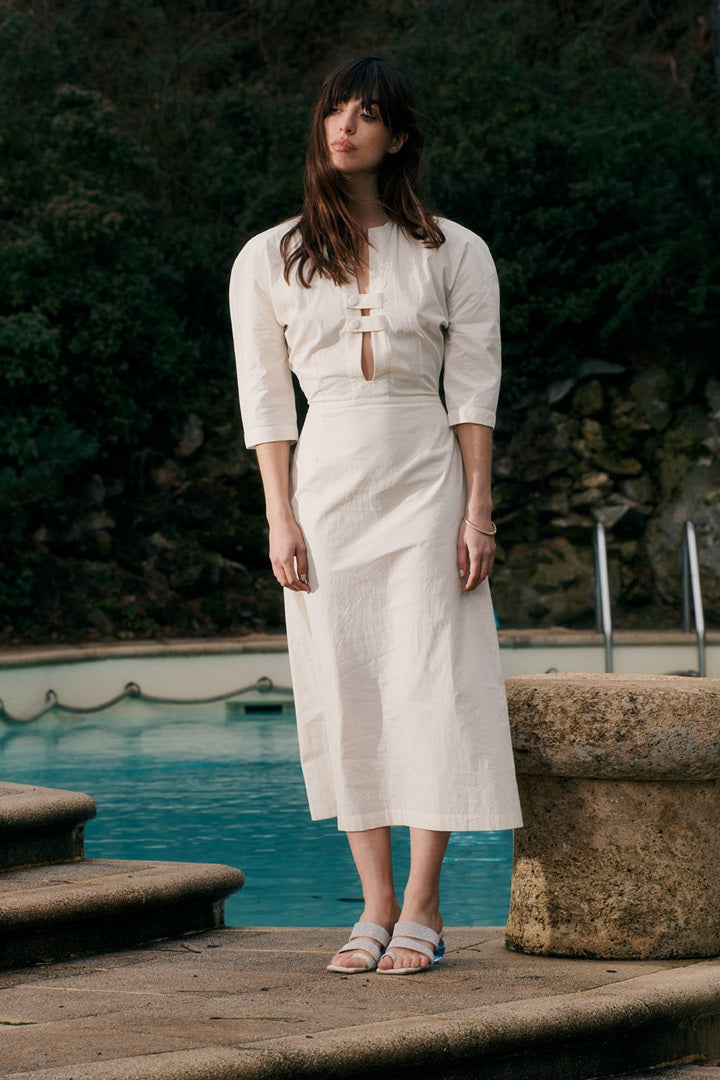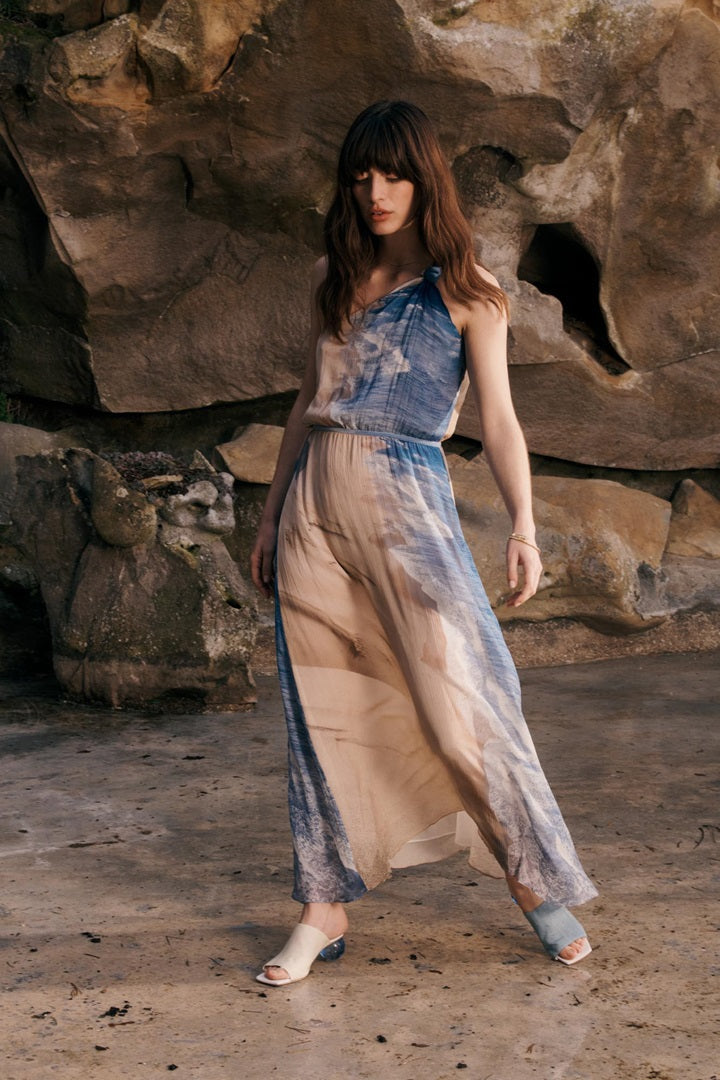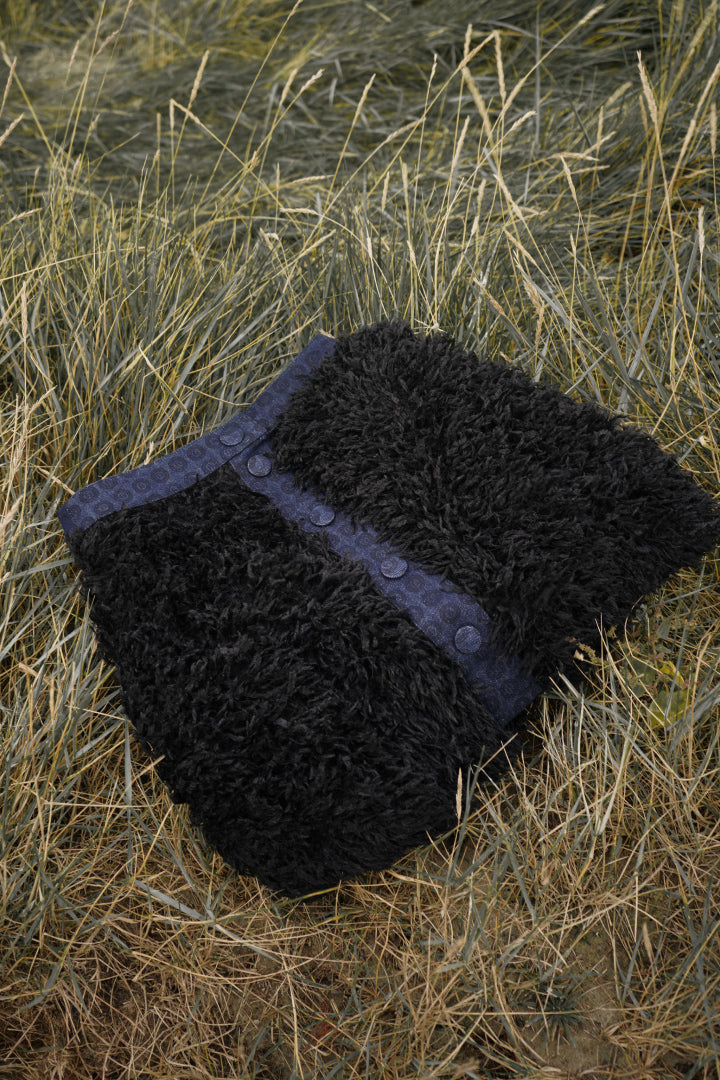
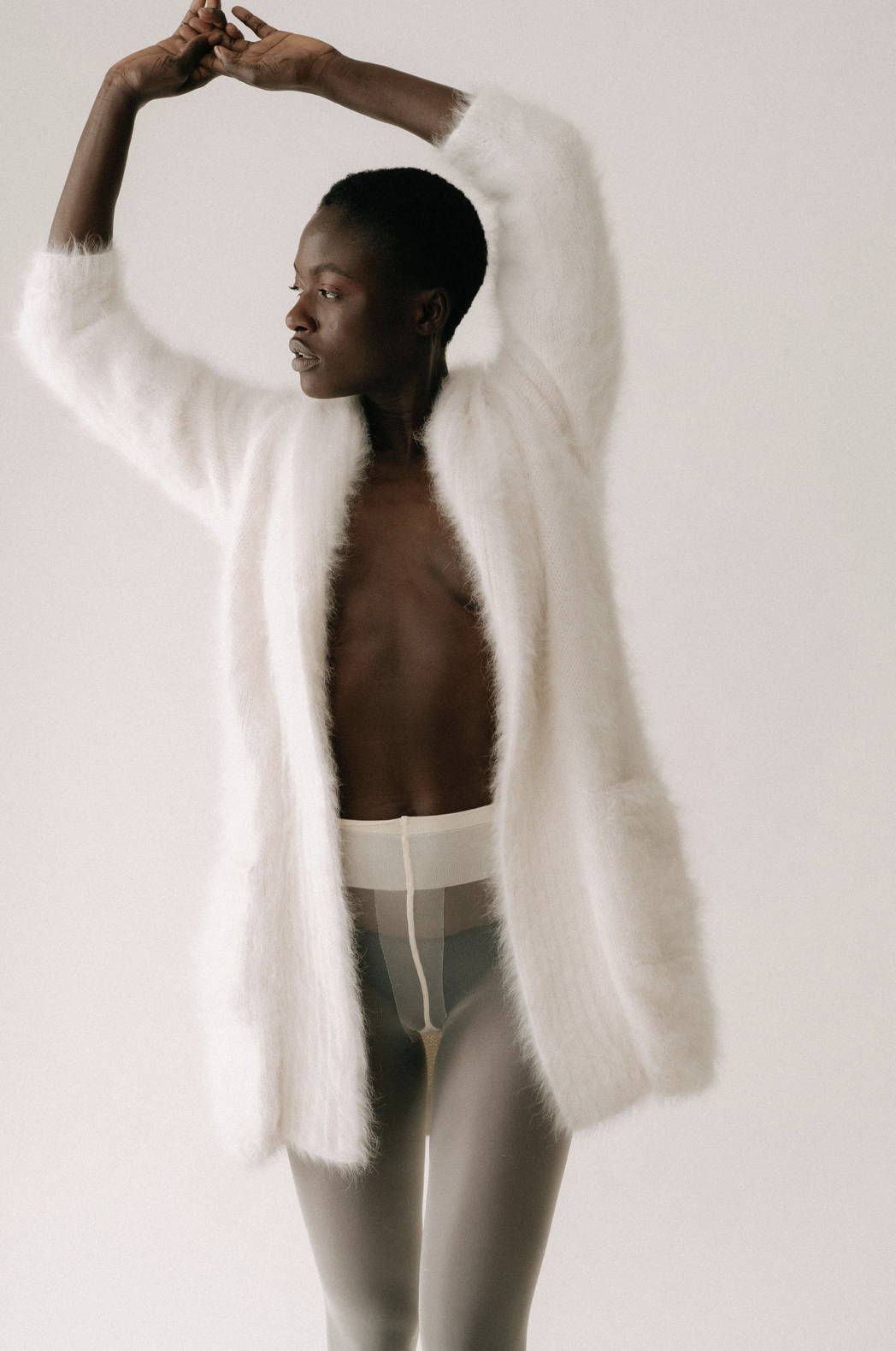
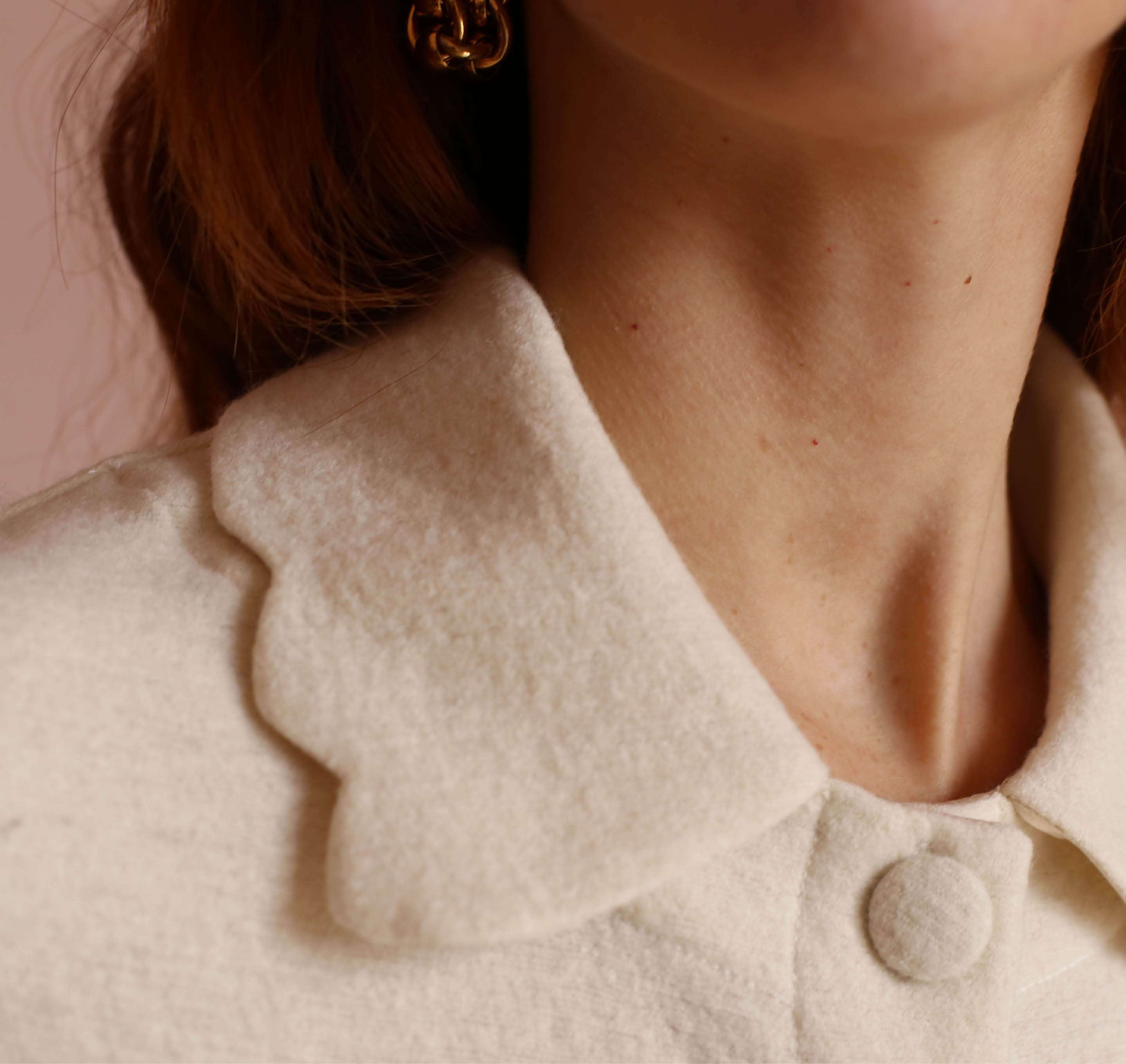
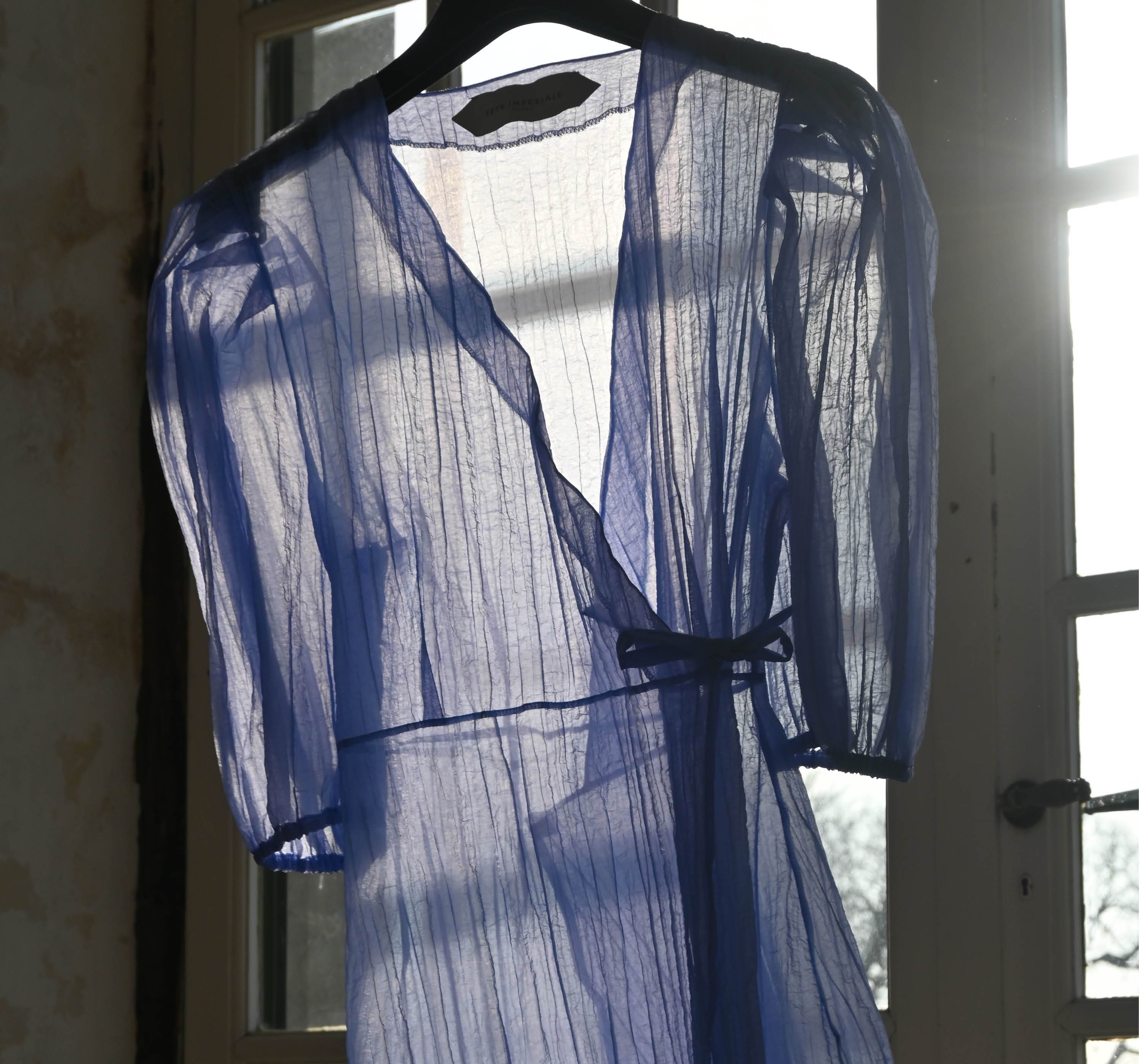
Notre volonté, fabriquer des vêtements en France | FI
Fête Impériale ou la fibre éthique de vêtements fabriqués en France, en Europe et en Tunisie.
Au cœur du vestiaire vivant de Fête Impériale, il y a la fibre éthique. Celle qui a su gagner ses lettres de noblesse avec des matières d’exception éco-responsables et s’attacher à la préservation de savoir-faire hors pair. Des premières esquisses réalisées dans le Marais à Paris jusqu’au gobelin filé à Florence, la créatrice Laura Gauthier Petit privilégie dans la création, le sourcing et la fabrication de ses pièces le parisien, l’hexagonal, voire l’européen. Et le plus loin qu’elle soit allée chercher l’expertise d’un tombé, c’est dans un atelier familial en Tunisie, de l’autre côté de la Méditerranée.
Du premier patron aux dernières finitions, retour sur l’itinéraire de production d’une marque de vêtements made in France qui recherche, encourage et valorise les savoir-faire dans le respect de l’humain, des matières et de la terre.

Le royaume créatif de Fête Impériale.
Depuis 2015, c’est toujours à Paris que la fête commence, que les imaginaires se libèrent et que les pièces-tableaux prennent vie. Le cœur de la création de Fête impériale bat au 28, rue du Roi de Sicile, dans le très chic quartier du Marais. Là, dans cette ancienne galerie d’art parisienne transformée en atelier/showroom/boutique, Laura Gauthier Petit, accompagnée de son collectif de talents, invente, crée, dessine toutes les douces armures de Fête Impériale. Toutes les collections de la Maison, intemporelles ou de saison, sont passionnément « made in Paris » ; toutes – de l’esquisse d’une silhouette à l’imprimé d’une saison–sont imaginées au cœur du studio de l’atelier parisien. Et c’est aussi dans le fastueux Paris du XIXème siècle, que la créatrice française d’origine réunionnaise puise son inspiration pour exprimer son style personnel délicieusement éclectique et sophistiqué.
Des matériaux éthiques made in France et made in Europe
Ancrées dans l’ADN du label parisien, conscience environnementale et éthique sociétale occupent une place centrale dans la recherche des matériaux de Fête Impériale. La marque privilégie, chaque fois que cela est possible, le sourcing et la production locaux, nationaux, voire régionaux, dans l’objectif de réduire l’empreinte carbone de la production et de valoriser le patrimoine vivant français et européen. Laura Gauthier Petit envisage l’étoffe dans une perspective éco-responsable qui favorise les petites productions, les circuits courts et les produits naturels. La matière première ou recyclée des créations, inspirée des tissus et des tenues du XIXème siècle, est soigneusement sélectionnée, toujours dans un souci de ne pas sacrifier la terre et le savoir-faire sur l’autel du prêt-à-porter.
Angora de France
Pour fabriquer ses pièces en angora éthiques, FI travaille avec le label Angora de France, un petit élevage de lapins angora français situé en Loire-Atlantique respectueux des animaux. De petites quantités de poils sont collectées avec douceur et soin par dépilation au rythme du cycle naturel de chute de poils des lapins pour produire, chaque année, une trentaine de gilets Leontia, l’une des pièces iconiques de la Maison.
Fried Frères, Paris
Pour sa blouse Eupraxia rehaussée de l’imprimé soie Perséphone, Fête Impériale a choisi les boutons de Fried Frères, créateurs et couturiers au 13, rue du Caire, à Paris.
La maille mohair, d’Angleterre
La majorité des mailles de Fête Impériale proviennent d’Angleterre, notamment les créations en maille mohair, comme la robe pull Duras.
L’Italie pour les tissus nobles et fragiles et les imprimés
Fête Impériale se procure le satin de soie, tissu phare de la Maison, auprès d’artisans italiens qui tissent la matière selon un savoir-faire local transmis de génération engénération. La crêpe de soie, la mousseline de soie, la popeline de coton utilisées dans de nombreuses créations emblématiques de FI sont aussi italiennes. Le lin et le cupro, des fibres responsables qui composent par exemple la robe Claudia, sont également tissés par des artisans de la botte.
Les imprimés, marque de fabrique de Fête Impériale, sont en très large majorité made in Italy.

Au cœur du vêtement de FI : la valorisation de l’artisanat français et européen.
De même que Fête Impériale favorise le made in France, voire le made in Europe, pour la sélection des étoffes de ses créations, les fabricants sont choisis en fonction de leur expertise et de leur engagement, dans l’objectif de valoriser des savoir-faire centenaires et un patrimoine immatériel extraordinaire. Fête Impériale privilégie souvent les petits volumes confectionnés minutieusement par une poignée d’artisans passionnés et virtuoses de France, d’Italie et d’Angleterre qui filent, cousent, brodent minutieusement l’ADN des créations.
Maison Lévêque pour la broderie anglaise
Pour produire la broderie anglaise d’exception qui orne les intemporels top Cécile ou robe Galathée, FI fait appel à l’expertise de Maison Lévêque, fabricant-créateur de renommée internationale qui, depuis 1969 produit à Villers-Outréaux, dans le nord de la France, de sublimes broderies, de la dentelle et du tulle pour les maisons de haute couture.
Une poignée de tricoteurs français
Grâce au label Angora de France, Fête Impériale a pu avoir accès à un petit réseau de tricoteurs français et valoriser l’artisanat hexagonal tout en préservant le bien-être animal.Pour la maille angora du gilet Léontia, Laura Gauthier Petit se fie aux mains expertes d’un couple de retraités bretons. Issue d’une lignée de tricoteuses, Madame Lefer a transmis son savoir-faire à son mari et, ensemble, ils s’affairent à confectionner les gilets intemporels du label.
La dentelle de Caudry
Des pièces de la collection Riviera comme le top Gina sont fabriquées en France en maille dentelle de Caudry.
Un filatier florentin pour le gobelin
Certains imprimés et tissus de Fête Impériale ont pu voir le jour grâce à l’ouvrage d’artisans transalpins. Pour le gobelin, technique de tapisserie française héritée de la Renaissance, la Maison s’adresse à un filateur florentin qui connaît les techniques traditionnelles de la tapisserie sur le bout des doigts.

Une garde-robe éthique confectionnée en France, en Europe et en Tunisie.
En France
Toutes les collections intemporelles, les chemises et les pièces en velours, ainsi que les créations confectionnées avec des tissus fragiles comme le satin de soie et les pièces à la commande sont réalisées dans le studio parisien avec le plus grand soin.
La ligne éthique swimwear est fabriquée en France et certains modèles, comme l’iconique maillot Naiade, sont même créés à Paris.
En Europe
En Italie : développement des imprimés et fabrication des pièces en tissus fragiles.
Au Portugal : Fête Impériale collabore avec une petite usine implantée au Portugal lorsque les volumes de production sont plus importants.
En Pologne : Une grande partie de la ligne outerwear, notamment les doudounes, est confectionnée en Pologne.
En Tunisie :
La Tunisie, c’est le pays le plus lointain avec lequel Fête Impériale s’associe pour la
fabrication de ses modèles, notamment pour la ligne swimwear, une partie de l’outerwear et les pièces en denim. Pourquoi la Tunisie ? L’usine avec laquelle la marque travaille est de taille humaine, emploie des couturières au savoir-faire incomparable, utilise des machines qui limitent la consommation d’eau et offre à ses « petites mains » de très bonnes conditions de travail.

Des collaborations artistiques françaises ou européennes
Laura Gauthier Petit collabore avec des artistes parisiens, français ou européens pour développer ses collections et créer des imprimés originaux et engagés. Pour sa collection capsule exclusive en collaboration avec Info-endométriose, la directrice de FI s’est associée à quatre artistes français. Et c’est avec Rachelle Cunningham, l’artiste peintre irlandaise basée à Paris, que FI a concocté sa nouvelle collection capsule « Vénus et Adonis » inspirée par une pièce poétique de Shakespeare.











